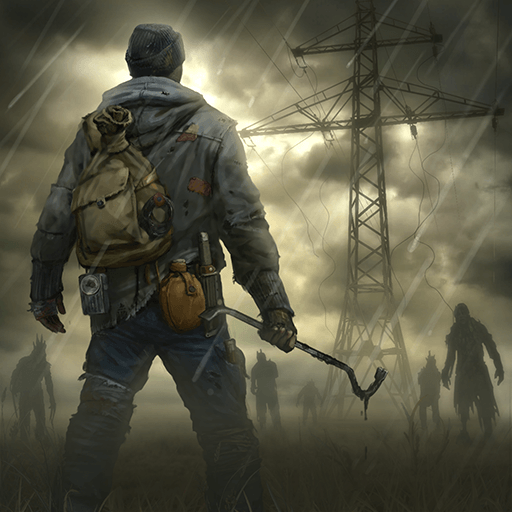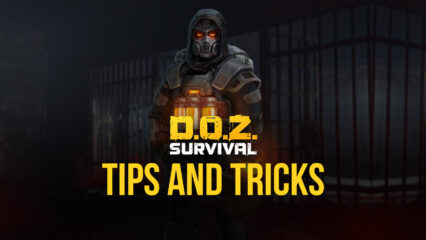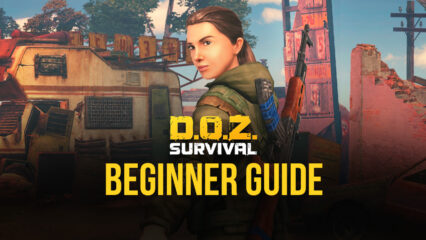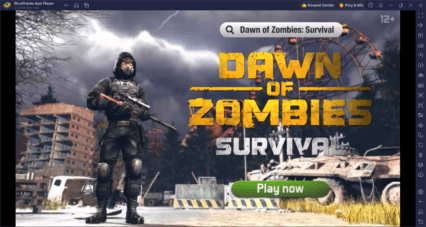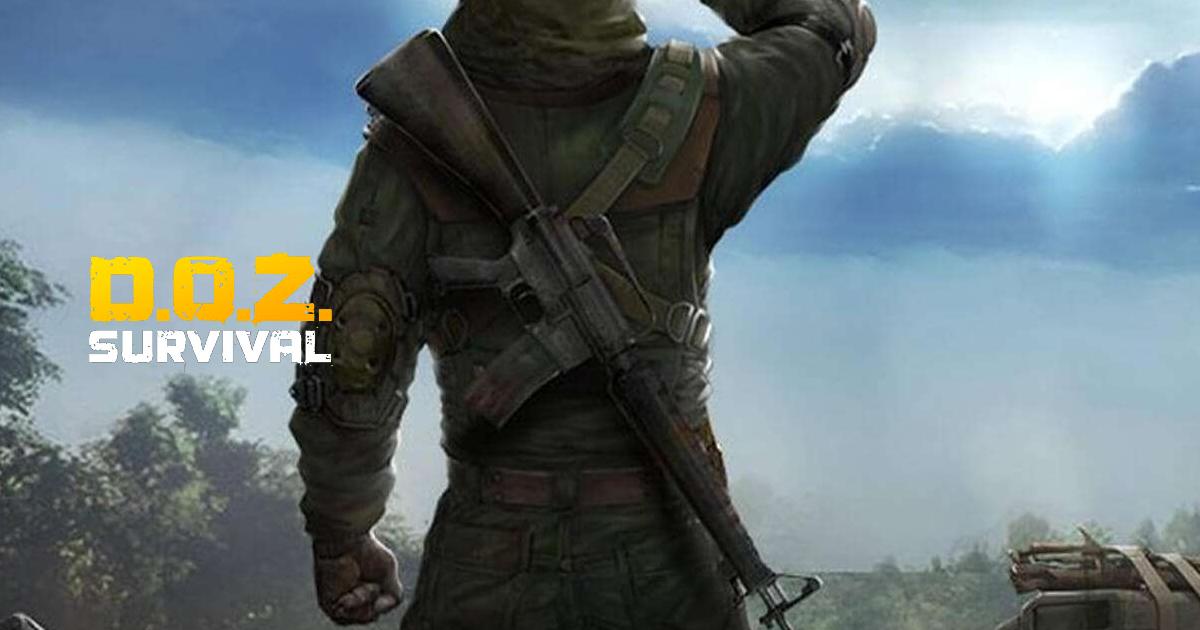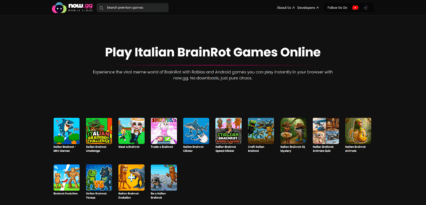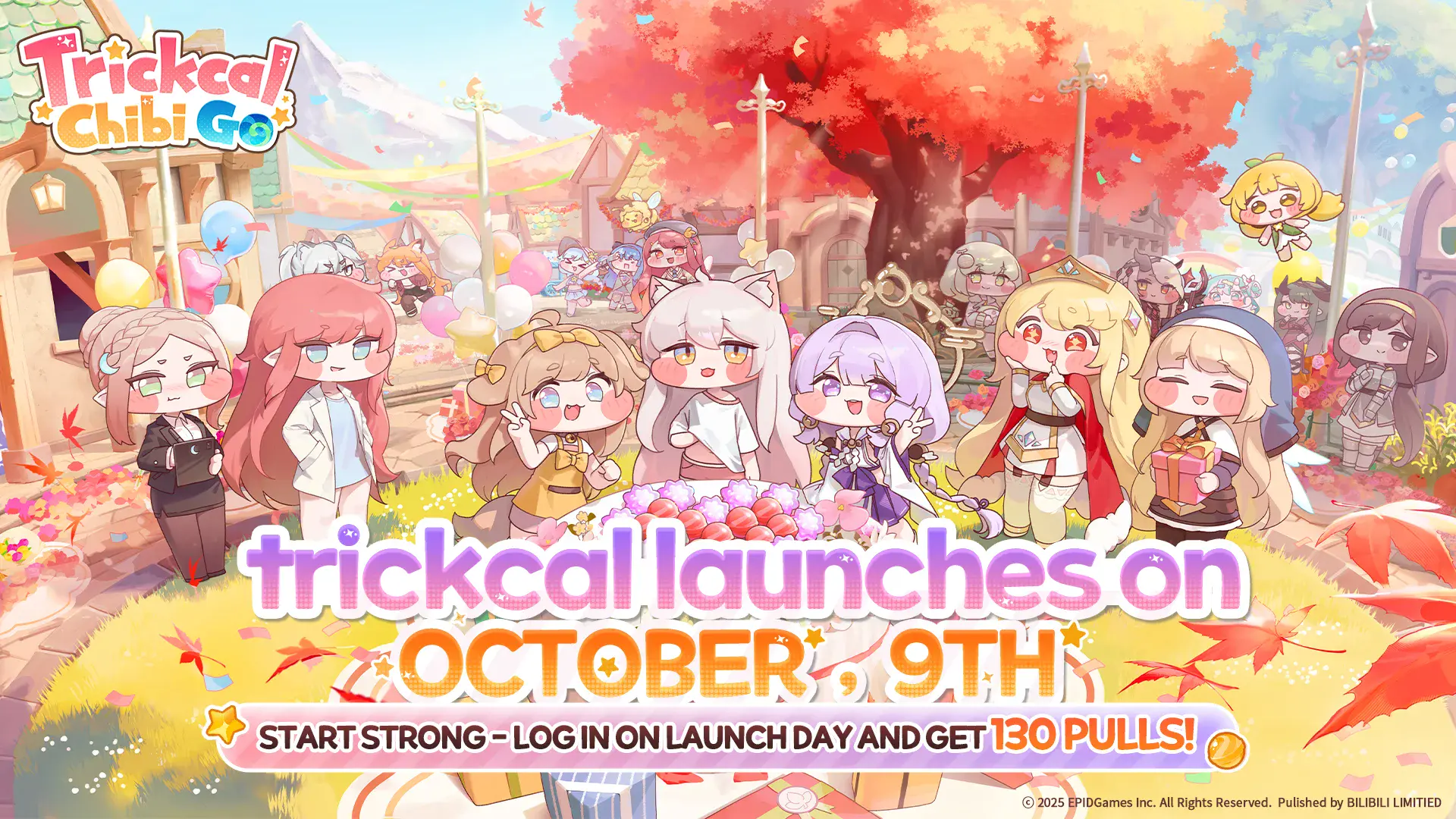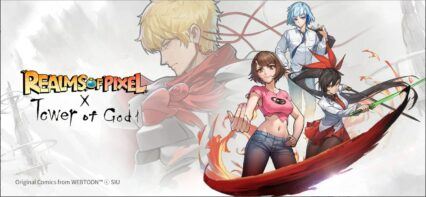Dawn of Zombies - Character Maintenance Guide
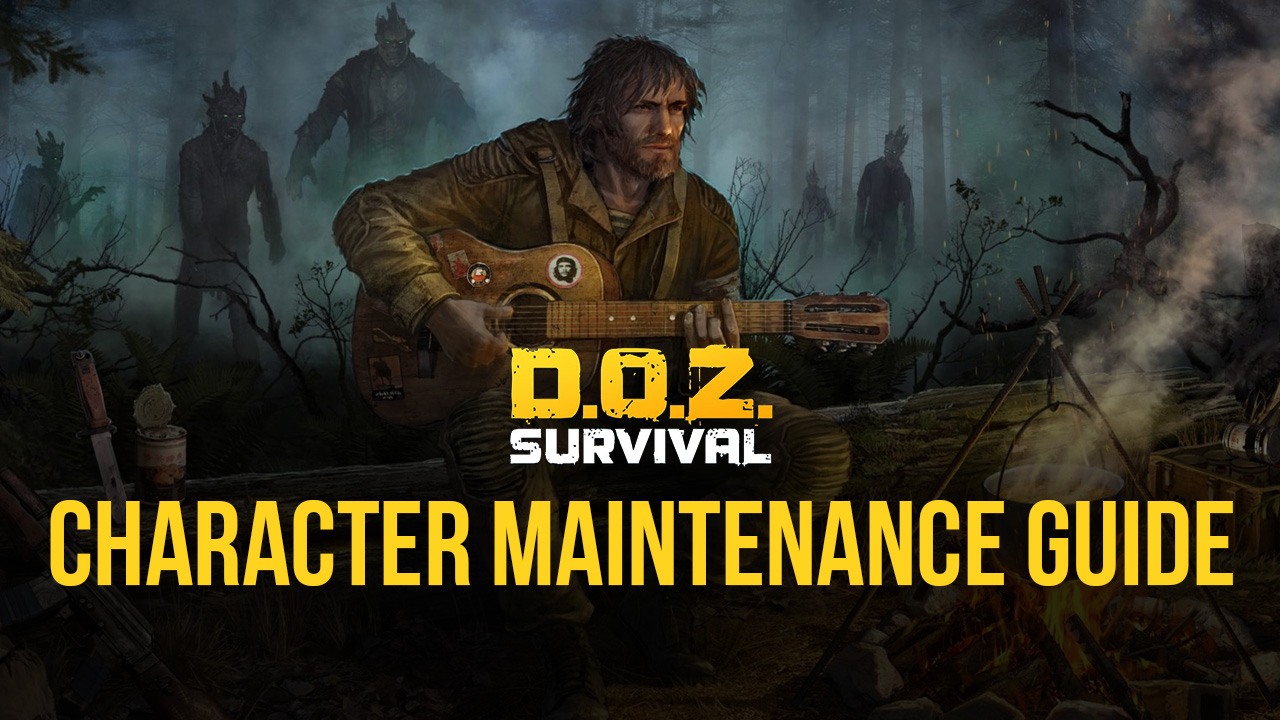
Dawn of Zombies isn’t just a mindless hack-n’-slash RPG game where you go through endless waves of undead to complete your goal. Surviving in this game is much more complicated than simply killing your way to victory, which is actually a good thing because it ignites a player’s resourcefulness while in game. With so many things to keep in mind while playing, it’s time to introduce the basics of character maintenance to help you get stronger and more resilient.
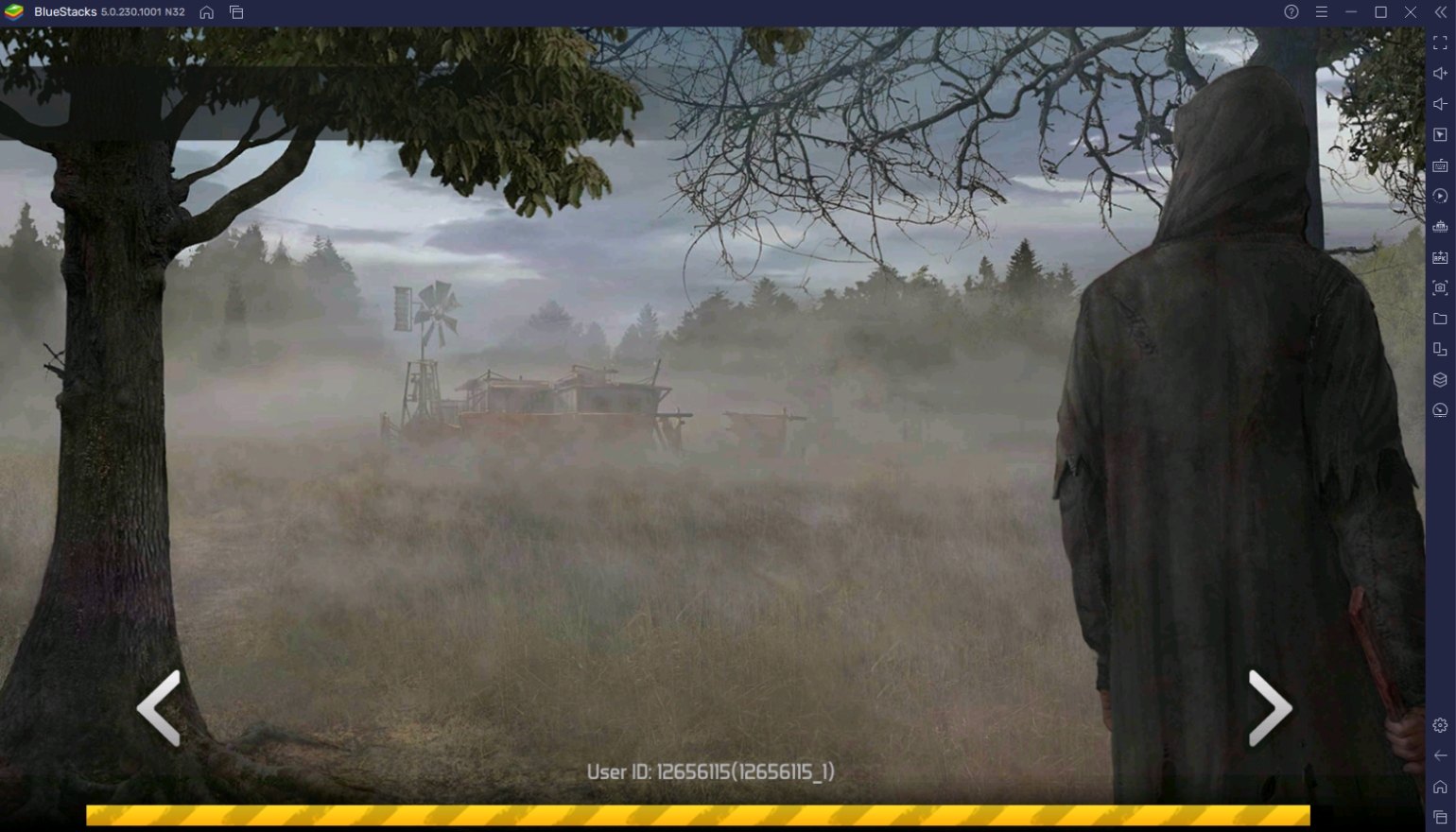
Players who have played games like The Sims or Ark on PC before will surely know the pain and hassle of trying to keep your character healthy. Dawn of Zombies uses the same mechanics as those games, but incorporates it into a zombie-themed game. Players who aren’t familiar with these mechanics might get confused about how to take care of their characters, which may lead to inefficiency when completing important in-game tasks or when fighting against enemies.
Health/Energy
Health is the character’s primary resource. Health increases as you level up, when you equip items with stat modifiers, and after using a temporary consumable. Health regenerates passively while inside the Shelter if there are no threats inside the base. Items such as Food, Bandages, and Drinks might be able to help a character regenerate a portion of their HP while in hostile zones. Health regeneration is reduced when the character is feeling Sick or is in combat.
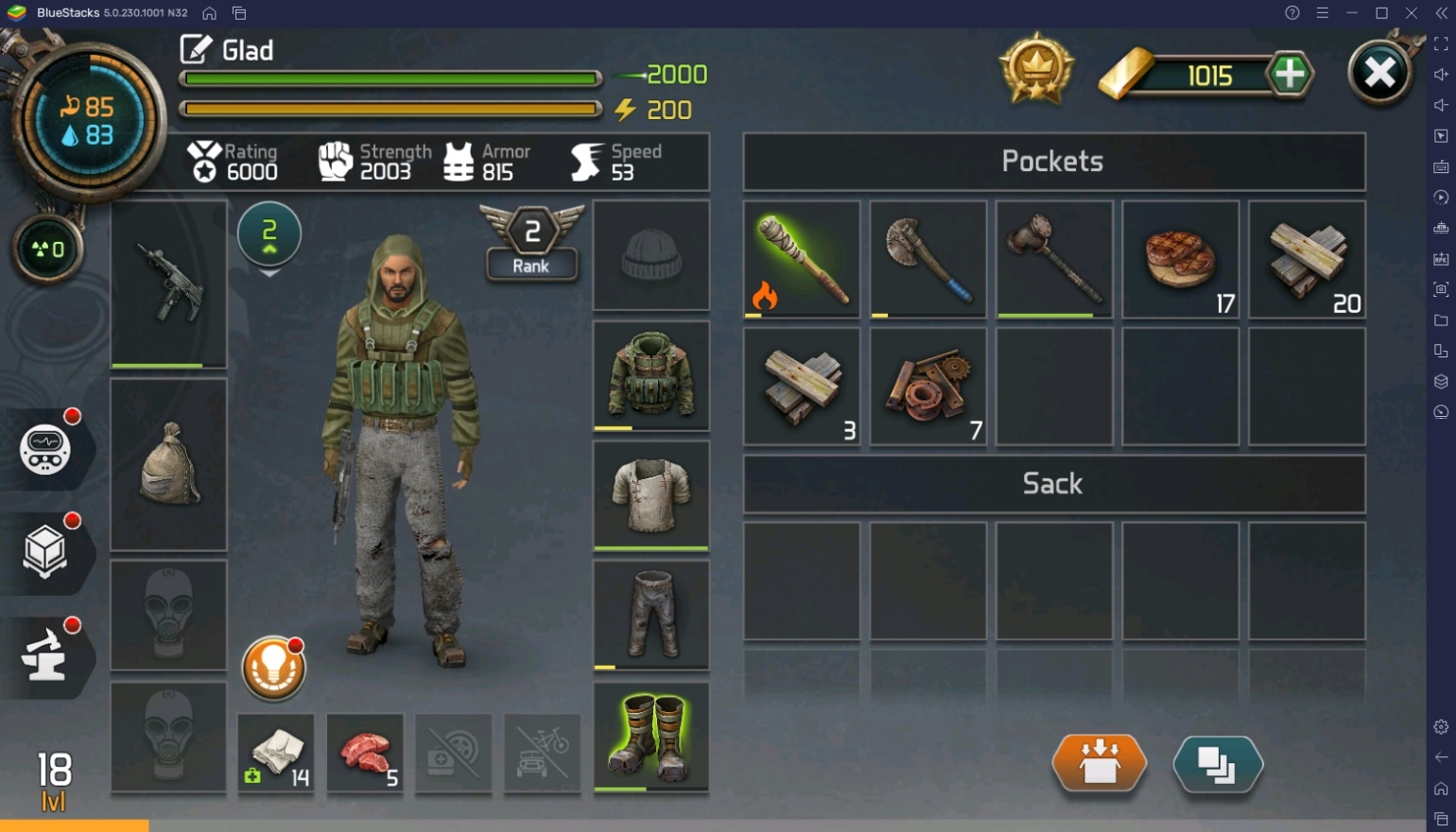
Energy is one of the two main stats that a character has. This resource is only used when trying to fast travel between places. As mentioned in the DoZ Beginner’s Guide, the distance travelled between the origin point and destination affects the amount of energy that’s consumed. Nothing really happens if you consume all your energy, but it can be annoying to wait. To recover energy, you can wait for it to passively recover (even if you’re offline) or consume food, drinks, and potions.
Food/Water
Food is one of the easier stats to maintain. The character slowly reaches starvation as it completes any action both actively, when using tools and weapons, or passively as time goes by. Players can eat food to relieve some of their hunger. When the hunger level reaches a critical level, the character will alert the player by showing a dialogue box mentioning that they’re hungry. Once the player reaches starvation, they’ll quickly lose health points until they ultimately pass out from hunger and lose all items.
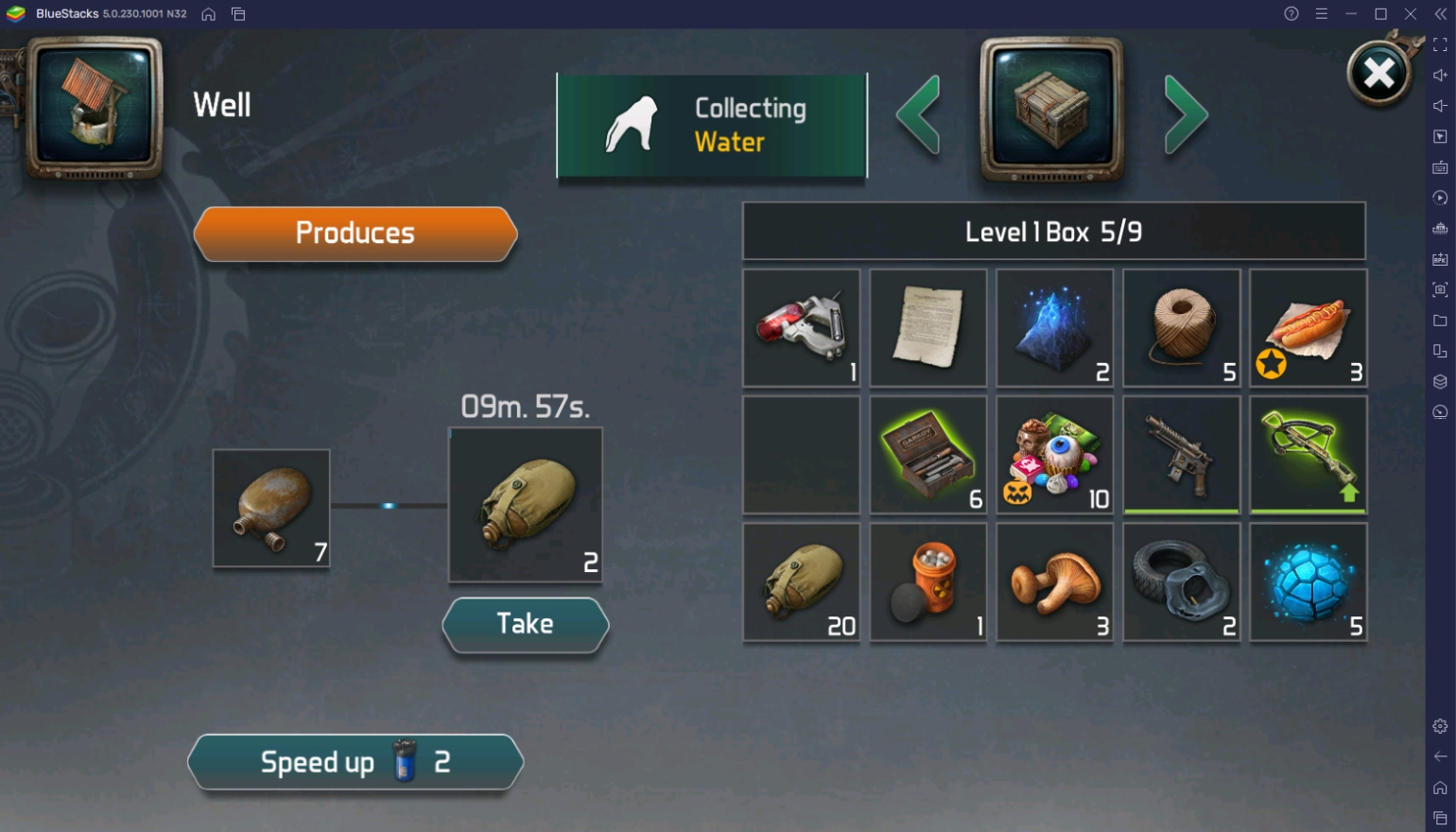
Water has the same function as Food in terms of adding a status that needs to be maintained. Unlike food, the only choices to hydrate your character is water, which can be looted either from enemies or gathered from the well. Gathering water from the well requires that you place empty bottles – which are a by-product of drinking water – or by looting it from other sources. Characters are more likely to become dehydrated than suffer from hunger because players rarely drink water.
Hygiene
Hygiene is also an important status to be maintained and is actually one of the harder ones to keep in mind. Unlike eating, drinking, or healing wounds, players can’t sanitize themselves outside of your shelter’s Wash Basin. Using the Wash Basin requires the use of filled water bottles (the one you use for drinking) and on higher levels, soap. Depending on what you use for bathing, the duration at which you remain sanitized increases significantly even if you’re outside.
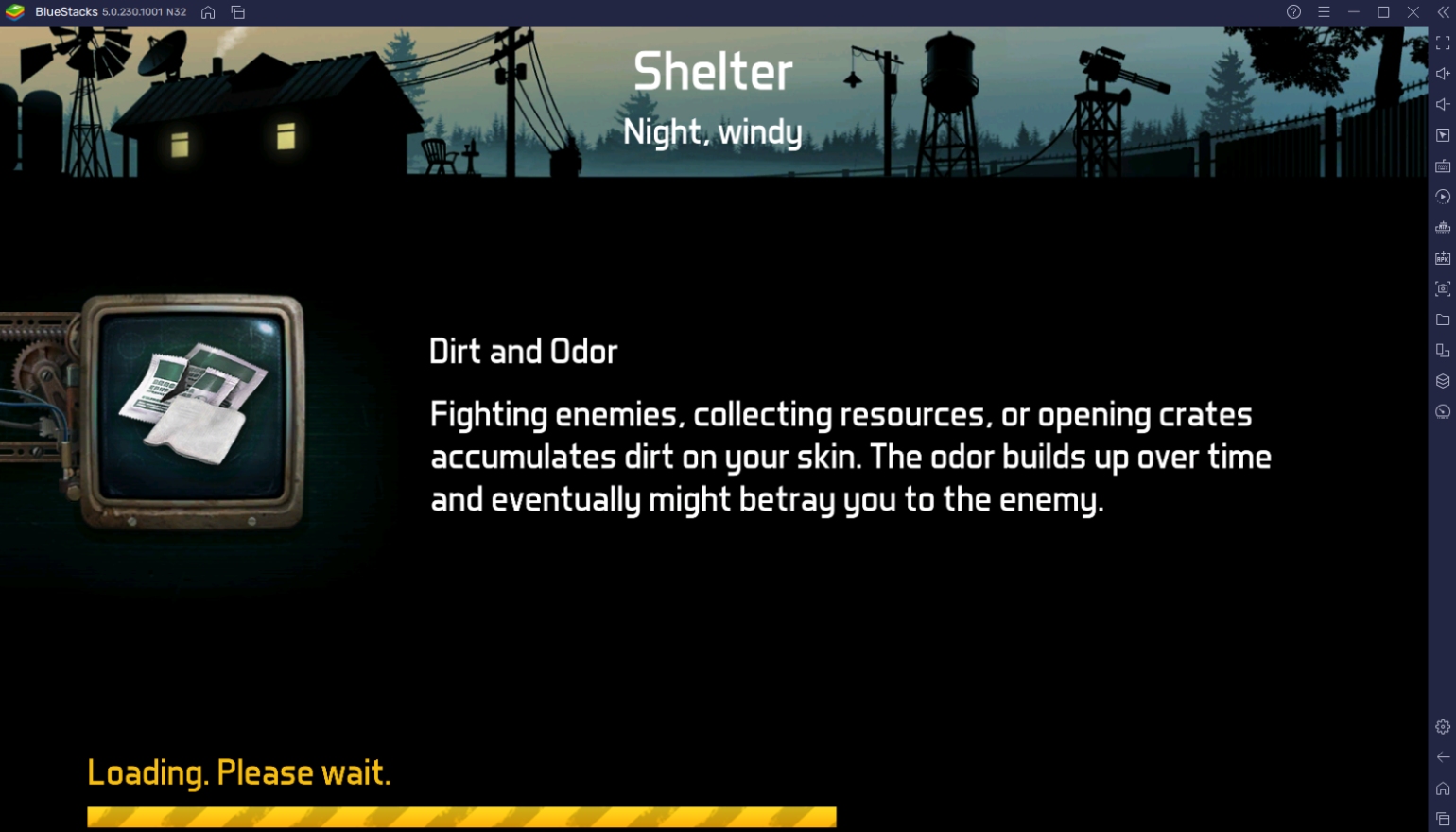
Hygiene is probably the stat that limits what players can do while outside their shelter the most. Once the character’s hygiene drops to a critical level, they’ll get sick and slowly lose health points. Luckily, the character doesn’t lose health points when traveling in the overworld. It’s a good idea to have your character take a bath before going out so that they don’t end up having to immediately go home without accomplishing what they went out for in the first place.
Equipment Durability
Equipment durability is probably the most disliked feature in any survival RPG game that involves the player needing to constantly have extra items in their inventory, as it doesn’t just take up bag space, but can be really expensive to repair. Much like other games, equipment in Dawn of Zombies can’t be repaired at the start, so you’ll have to constantly keep replacing them when they break. Durability is a feature in weapons, armor, clothing, and tools every time they are used.
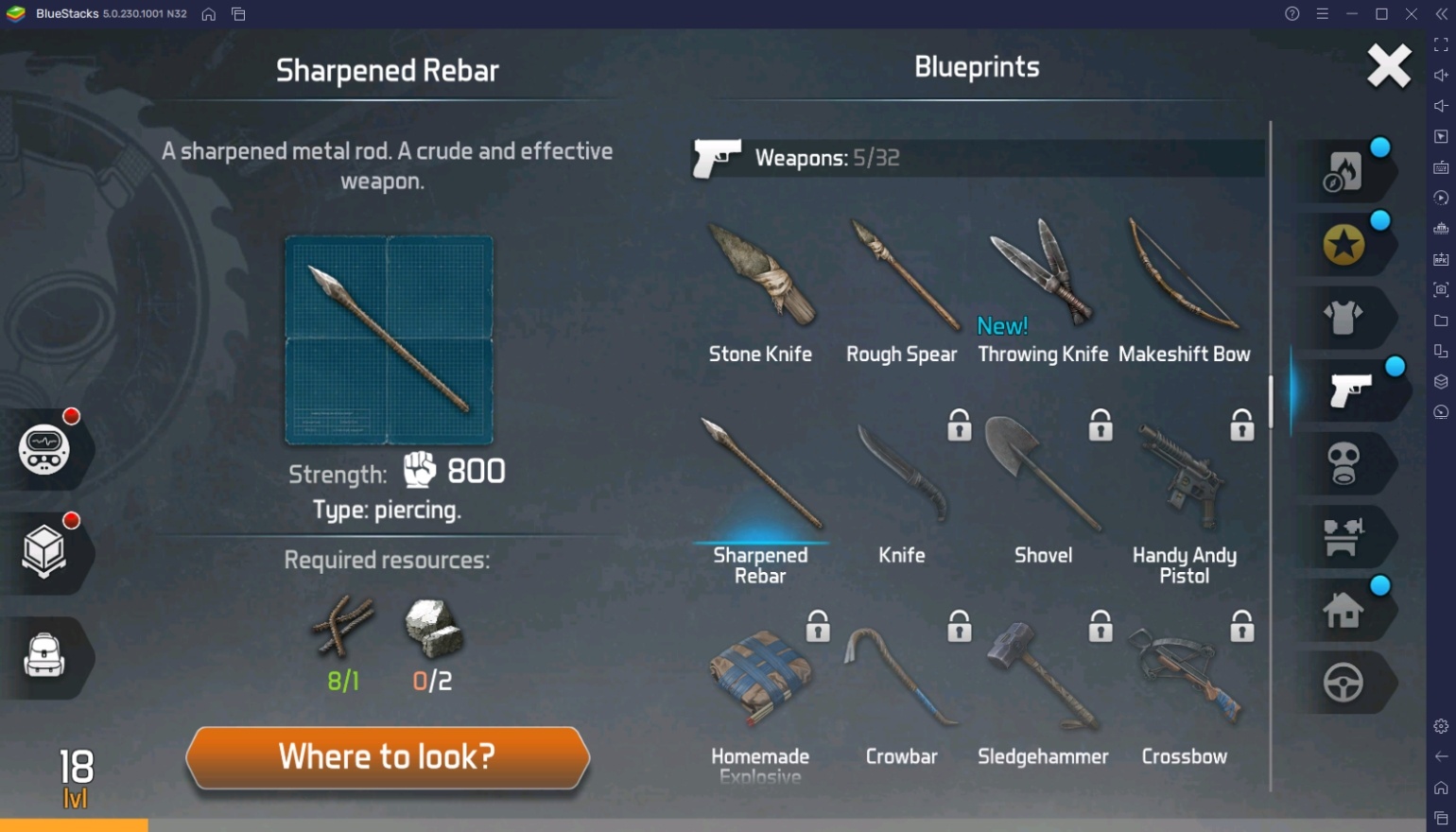
Durability depends on the quality of the item crafted. The better the quality of the item, the longer it will last, even if you use it often. One important thing that players will tell you about is that you should never use tools as weapons unless it’s as a last resort. Axes and hammers may seem like a good source of damage, but aside from the fact that they don’t really do more DPS for the stats they have, they also use up more durability when used as a weapon instead of a gathering tool.
Making Use of Consumables
Consumables play an important role in Dawn of Zombies and are probably one of the tools that players can’t leave out when going out on a mission. Consumables include anything that can be used only once before they disappear or need refilling. These items include food, drinks, potions, and bandages. Like all items in the game, players will need to place them inside the inventory so that they will be able to use them at a later point in the game if they think it’s necessary for them.
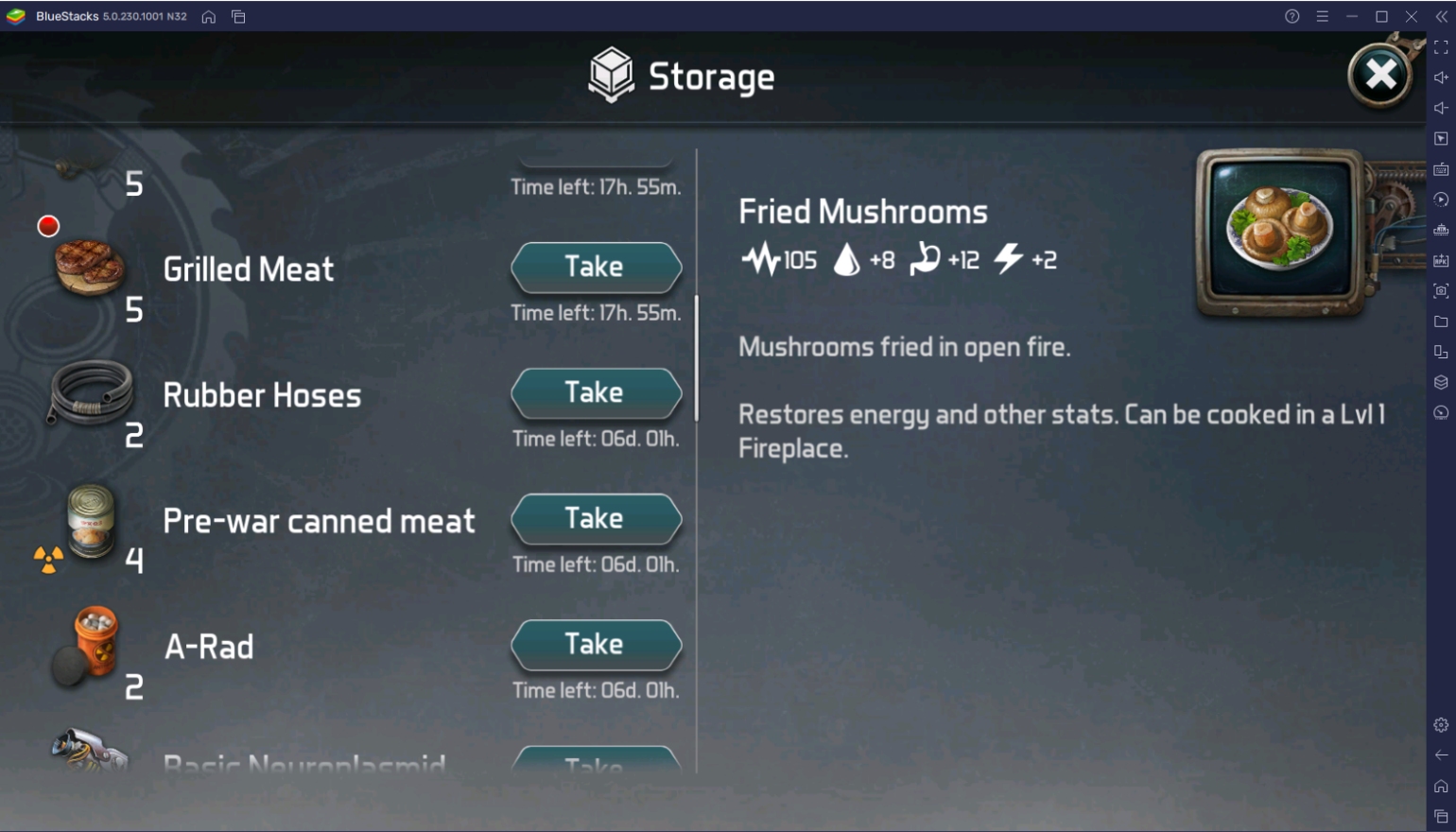
In higher levels, players will be facing off against more difficult enemies and even bosses that really hit you really hard. Against enemies like these, no amount of kiting will help you especially if the weapon breaks while you’re fighting against them. To even the playing field, it’s a good idea to bring some bandages or potions so that you can restore some health while in the middle of the fight. Food isn’t enough because it restores HP over time instead of instantly like bandages and potions.

